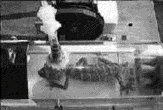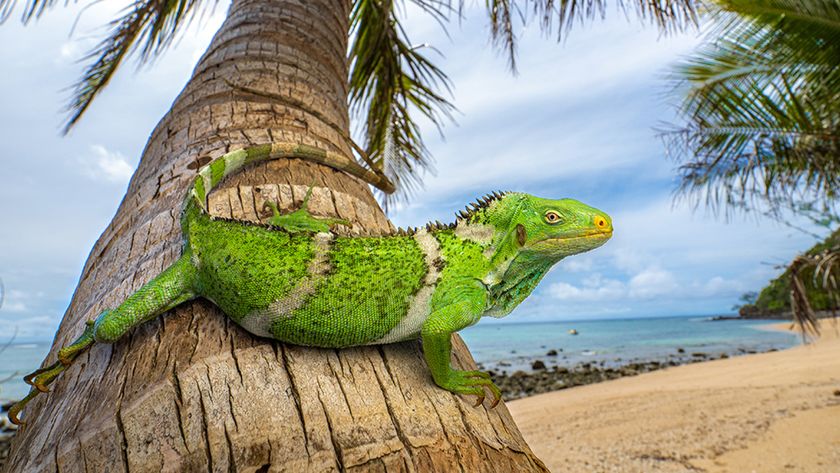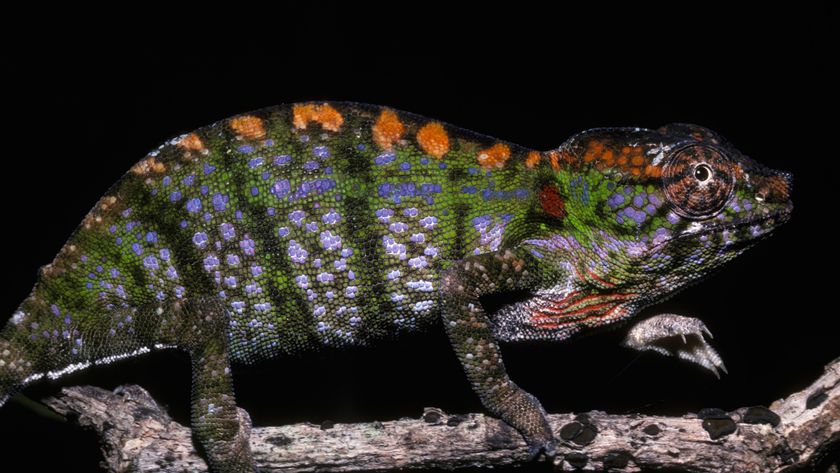Super Geckos Excel without Sex

Geckos that forego sex and instead clone themselves are able to run farther and faster than relatives that reproduce the more conventional way.
"This is extraordinary," said Kellar Autumn from Lewis & Clark College in Oregon. "The traditional theory is that when a species gives up sex and reproduces through cloning, the offspring will have reduced performance."
Parthenogenetic animals, which create exact copies of themselves, are all females: mothers cloning daughters. Autumn and colleagues studied the parthogenetic Bynoe's gecko from Australia.
The researchers used a state-of-the-art lizard treadmill to test the gecko's speed, body temperature, and calorie burning, and compared them to other lizards.
The Bynoe's geckos turned out to be much better athletes than their sexually reproductive relatives, outperforming them by 50 percent on the treadmill. This was a surprise, since a similar study of lizards from the deserts of the United States had shown the opposite trend.
One of Autumn's coauthors, Michael Kearney, said that some parthogenetic species, like the Bynoe's gecko, evolved when two species crossed, or hybridized. Kearney compared these ultra-fit geckos to the "super tough" mule, which is a cross between a horse and a donkey.
"If there was an Olympic team of Bynoe's geckos, there wouldn't be a single male on it," Autumn said. "They are the 'Xena: Warrior Princess' of the lizard world."
Sign up for the Live Science daily newsletter now
Get the world’s most fascinating discoveries delivered straight to your inbox.
The findings are in the May/June issue of the journal Physiological and Biochemical Zoology.
Related Stories
- Survival Skills: Why Sex is Good
- World's Ugliest Animal? You Decide
- The Origin of Sex: Cosmic Solution to Ancient Mystery
- Plant Passes Genes Sans Sex
Run, Gecko, Run!

Credit: Video image courtesy of Kellar Autumn, associate professor of biology, Lewis & Clark College












